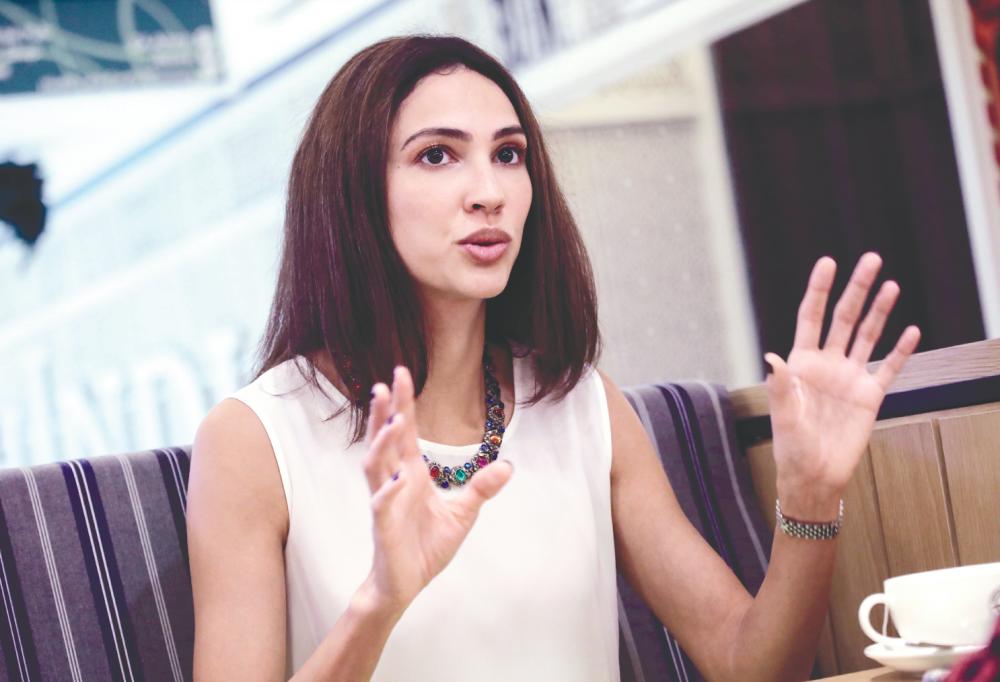SHE made news when she was crowned Miss Malaysia World in 2007, and then again as Miss Malaysia Universe in 2011.
However it was what she did in-between pageants and what she continues to do to this day that makes Deborah Priya Henry interesting.
While trying to decide what to do for her Miss Malaysia World project with Beauty With A Purpose (required of all pageant winners) Deborah realised that people wanted to help those in need, but often did not know how.
“So I created a little magazine called Reach Out, and we printed a stack to be inserted in newspapers. I reached out to a friend working for the UNCHR (United Nations High Commissioner for Refugees) and she gave me content for the magazine.”
In 2008 the same friend approached Deborah for a documentary on refugees, and that is when she met a Somali refugee family of four children (aged 10 to 14) who weren’t in school.
“[They were living] 20 minutes from KLCC. They were sitting at home, with no access to education, so they were not going to school. For me this was very alarming.”
Deborah began giving the children Math and English lessons, along with her university mate Shikeen Halibullah. Word began to spread among the refugees, and more and more families began sending their children to the two women. At the same time, Deborah and Shikeen met Shafie Sharif, a Somali community leader who was also offering private tuition classes for refugees.
In 2009, Deborah and Shikeen co-founded the Fugee School, with help from Shafie.
Over the past decade, the school has educated over 500 refugee children, and currently has over 200 children between the ages of four to 18 enrolled in its classes.
“Firstly I think that people need to understand that for refugees, they don’t have the government’s protection, they don’t have access to services that Malaysian citizens have. So they are cut off, literally isolated. Even if they wanted to go to school there wasn’t an option for them.”
Having a mother who was an educator, Deborah understood that without basic education, the future of these refugee children would be bleak.
“The school is for any child who is a refugee or stateless, who doesn’t have the [required] identification [documents] that allow them into a government school.”
Having such access to education allow school-age refugee children to experience as normal a childhood as possible under difficult circumstances.
“We realised that life was a journey and as a refugee, your life cannot be put on hold. You can’t put your life on pause while in Malaysia, and then press play when you are resettled in another country. Life doesn’t pause for anyone,” said Deborah.
However, basic education alone is not enough for the children. The Fugee School has programmes to send some of the children to university (via scholarship from private colleges and universities), help them build soft and hard skills, and help them get internships and job opportunities.
“We also run entrepreneurship programmes in partnership with the UNCHR. We give out small grants to refugees or communities who have great business ideas so that they can bring them to life.”
The UNHCR grants are RM10,000 yearly, and Deborah said they hope to evolve the programme further.
“Everything we do is to give people access to fair and equal opportunities to reach their full potential, and to build successful lives.”
The Fugee School also works closely with UNCHR but most of its funding comes from the corporate sector and private donors, and that is why they have to be very active in fundraising and advocacy.
Deborah admits that running the school is hard, but she is determined to change the conversation from charity to self-reliance.
Deborah said: “Over the past 10 years we have evolved into a non-profit, offering different programmes for the wider community. We look at it as a continuum.”
Deborah also admits her celebrity status helps with fundraising efforts.
She said: “For me the pageants are an achievement. It is something that raised my profile. It put me in a position where the media wanted to interview me. It gave me a platform to talk about things that matter to me.
“If people are in a position to work and earn their own money, they can better care for [those they care for].”













